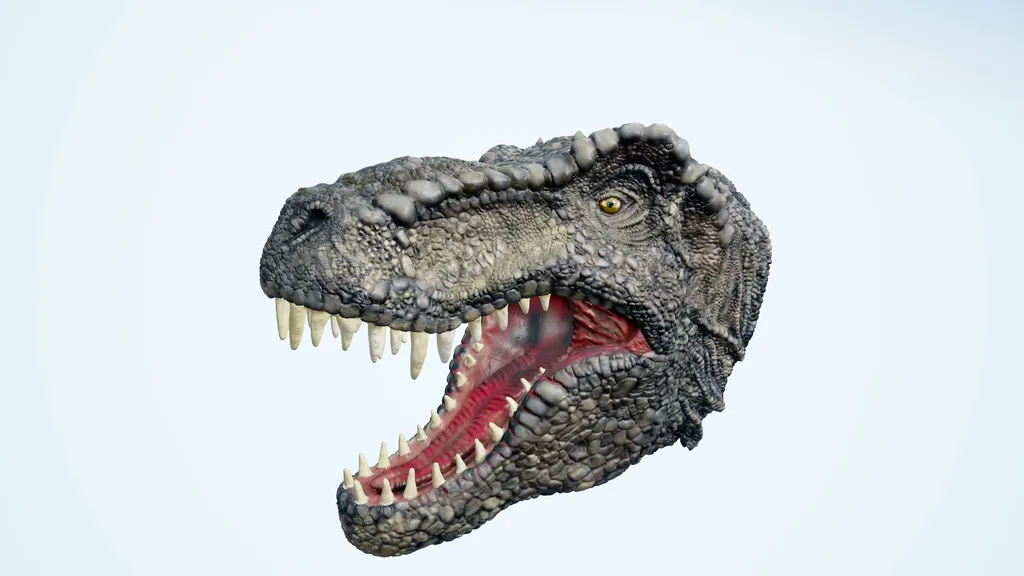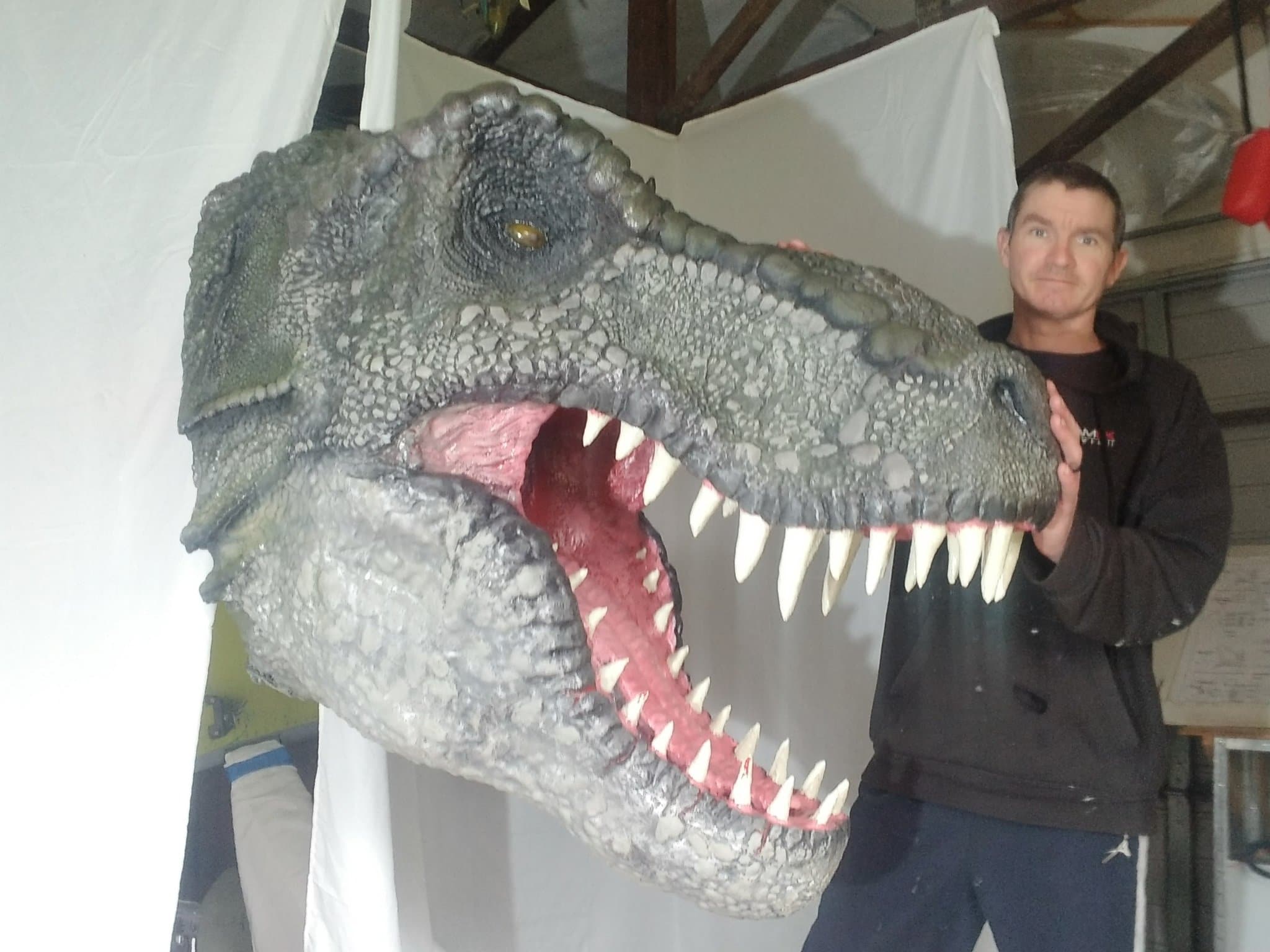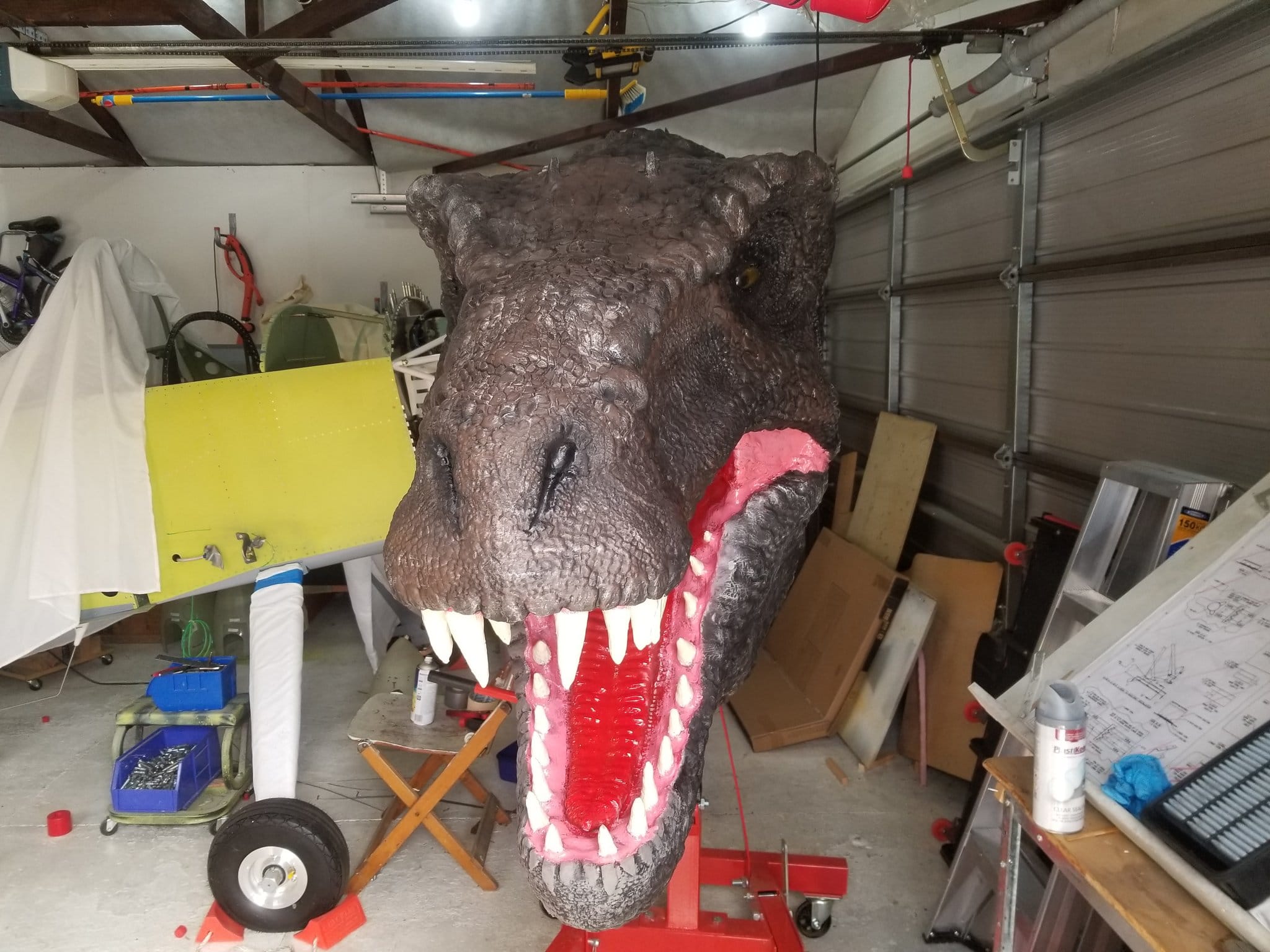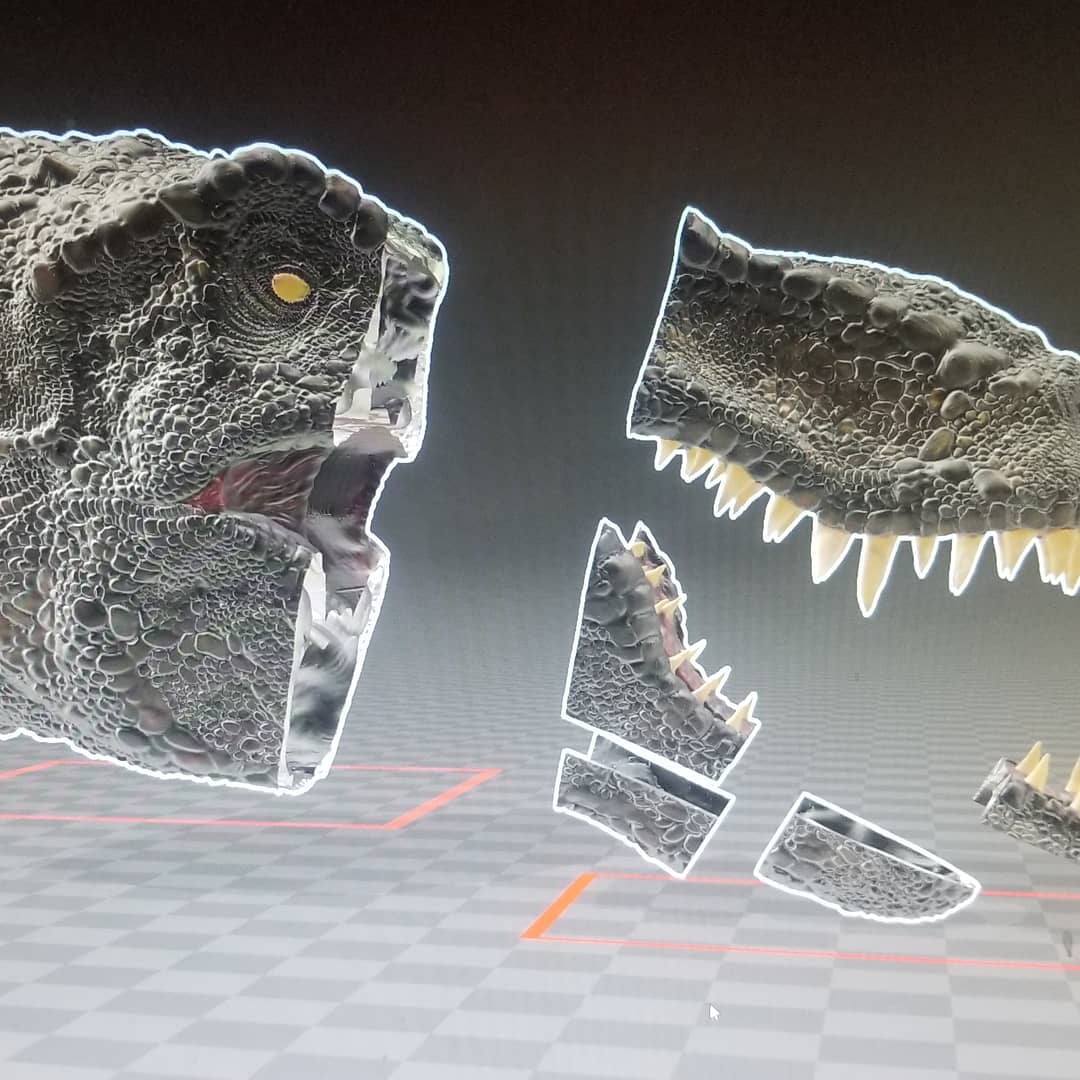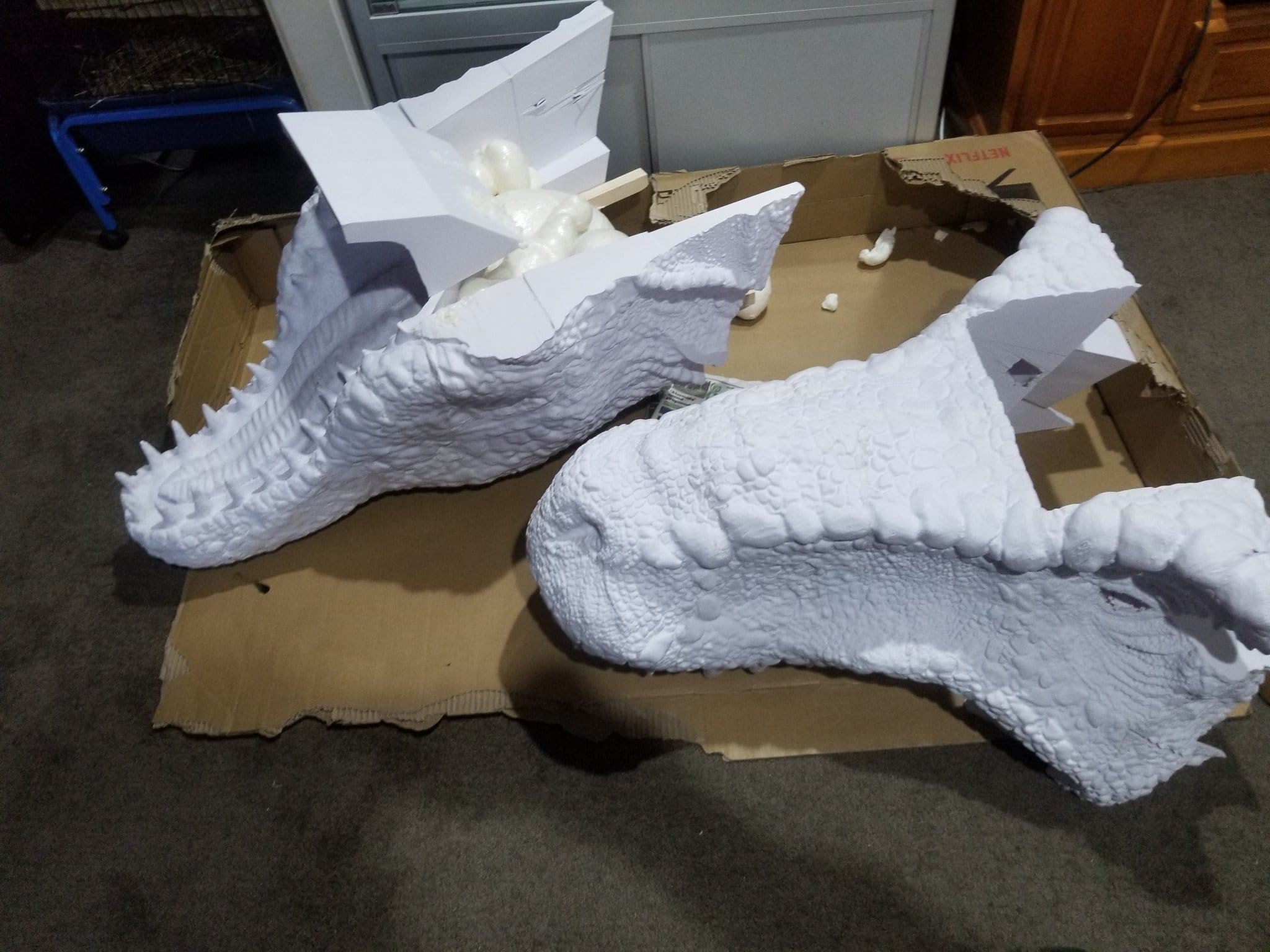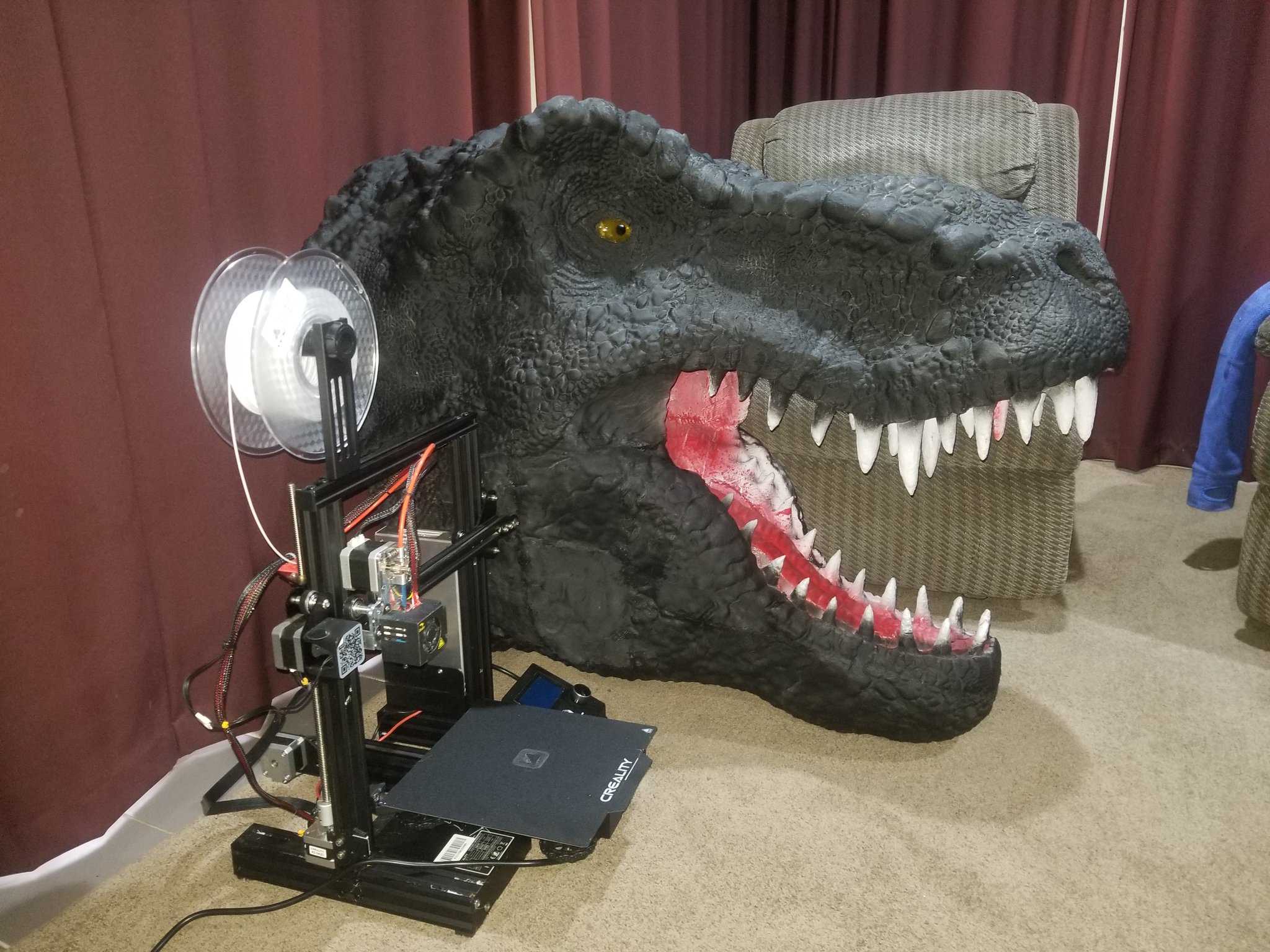Earlier this summer New Zealander Simon Clark spent nearly four hours in SculptrVR with the Rift S detailing the shape of a Tyrannosaurus rex.
After roughly 700 hours on his 3D printer and the addition of spray-painted detail, the absolute unit of a T. Rex — 1-meter tall and 1-meter long — may go in a corner of his living room set up to look like it is breaking through the wall.
It looks fairly menacing when you see it to scale next to Clark.
While plenty of physical things are made or visualized partially in a VR headset, including buildings, vehicles and even entire Disney attractions and lands, the T. Rex may still represent one of the larger objects modeled exclusively in VR. (If you know of something bigger please email tips at uploadvr dot com.)
SculptrVR is the VR creation software made primarily by Nathan Rowe and available on most VR headsets. He’s retooled and optimized the software considerably over the years and the app even includes multiplayer with support for each player scaling themselves to different sizes. The feature made SculptrVR one of the most delightful only-in-VR multiplayer things you could do over the last few years.
”From the very early days, Simon has been pushing the boundaries of VR’s creative potential,” Rowe wrote to me. “He’s built entire worlds expanded over months into sprawling landscapes full of detail. I’ve been using some of his creations as benchmarks to optimize and improve SculptrVR over the years. He continuously impresses me and pushes things further than I thought possible.”
Clark’s been a gamer his whole life dating back to the Commodore 64 and he’s a “weekend pilot” too, with the potential of flight sims drawing his interest to buy a DK2 “the minute I could” and “even on my fuzzy old DK2 I was mind blown.” He played Minecraft for its creative expression and then found SculptrVR on Steam.
“My initial reaction was ‘OMG someone has built the perfect game’ — a creative app and you can explore your worlds and fly around them,” he wrote to me. “I mainly used it to build big worlds at the start, but after a while I started to see it was possible to create some incredibly detailed one piece sculpts and have just kept pushing my limits and SculptrVR’s limits from there. And Nathan has continued to evolve SculptrVR into the amazing app it is now, and without it I wouldn’t have even bought a 3D printer.”
He previously made a raptor as well and says his research for the Rex suggested the average skull is around 1.2 meters long. He believes his print to be about 3/4 scale.
“Once I started printing, I did think ‘damn this is bigger than I thought 🤔😂,’ ” Clark wrote.
He printed it on an Ender 3 Pro and believes it likely weighs around 12 kilograms, or more than 26 pounds. There’s a wooden frame on the back so he can mount it to a wall.
“I went back and cut the head off the Rex and then probably spent another 5 hours all up just cutting all the scales out individually,” Clark explained. “Part of the trick I worked out for large scale is getting as much detail in there as you can and SculptrVR makes that easy. The more detail the easier it is to paint.”
He told me the Rex head had roughly 18 million triangles and he ended up cutting it up into 53 pieces in what he called “probably the biggest tedious task of the entire project.” None of his prints failed so he used nine rolls of filament, each weighing 1 kilogram.
“I managed to accomplish one task I really wanted and that was no supports to reduce waste. Also cut infill down to as much as 1% on some pieces and up to 10% on others. I might add that when cutting in 3D Builder I only left the shell pieces… I.e. didn’t print anything that didn’t need to be,” Clark wrote. “I used expanding foam after to help tie all the sides together from the inside for strength.”
Clark used a soldering iron “with a modified end I made” to bond the pieces together and “bought a cheap kids 3D printing pen and used that essentially like a welder and filled any gaps where I had a few slight warping issues, but nothing major.”
First he spray painted matte black all over “and then set to work dry brushing the rest,” he wrote, with the painting process lasting roughly six to seven hours over three days.
“The plan is to mount it in the living room at this stage and make a false looking wall panel in one corner and make it look like it’s burst through with broken pieces of fake wall around its neck or something similar,” Clark wrote. “That’s next weekend’s plan anyway. 🙂”

